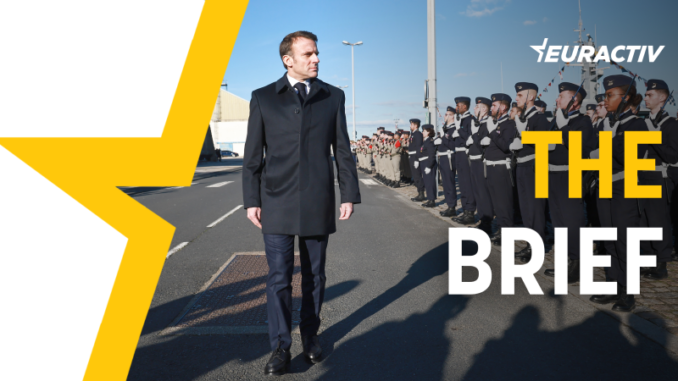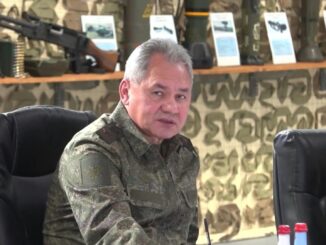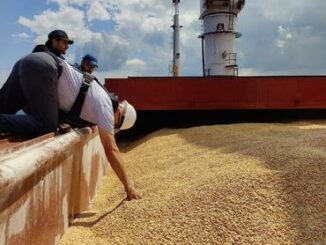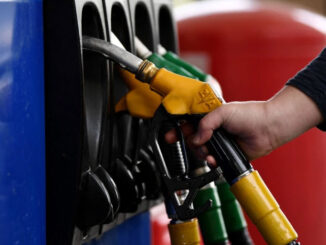
Forget Western ‘troops on the ground’ in Ukraine. French President Emmanuel Macron had a much more important message to deliver this week.
Monday’s meeting of more than 20 European leaders in Paris, meant as a show of European unity and force, ended up highlighting Europe’s limitations when it came to supporting Ukraine, with Western allies quick to distance themselves from the idea.
After Macron said that deployment of Western troops in Ukraine should not be ultimately “ruled out”, French officials rushed to clarify that only non-combatant roles would be under consideration in any case.
This could be done within the framework of five priorities defined during the conference: de-mining, cyber defence, defence of Moldova, protection of the borders with Belarus, and the co-production of weapons in Ukraine.
Still, a range of analysts agree Macron’s comments did not come out of the blue and may have very well been testing the waters for how it could be possible to support Ukrainian troops in the future, though most likely away from the frontlines.
Besides, as one Western military official pointed out, according to intelligence reports, the UK already has a bunch of special forces in Ukraine in an advisory function.
It is said to be one of the reasons London has led on tanks, long-range missiles and other weapons deliveries, having been told by its people about the needs and shortcomings they see up close on the ground.
More outspoken Eastern European officials backed the idea that the West should make its calculations and red lines less predictable for Russia’s Vladimir Putin.
“Times like these require political leadership, ambition, and courage to think out of the box. The initiative behind the Paris meeting yesterday is well worth considering,” Lithuania’s Foreign Minister Gabrielius Landsbergis said on Tuesday (27 February).
Whatever Macron’s reasons, the actual core message was a different one.
Seen from Europe’s East, Macron took a ‘Baltic turn’, mentioning the growing concerns about Russia’s adverse plans for Europe.
European defence chiefs have in recent weeks warned, one by one, of the possibility that the Kremlin might harbour ill intentions, and put some of them into practice, in the next few years.
Now it was the first time that a Western European leader, who only two years ago was careful “not to humiliate” Putin and mused about future peace talks, clearly spoke about a direct Russian threat to European territory.
“I was able to note, after listening to what most of the countries represented around the table said, that the common consensus was that we should be ready, in a few years, for Russia to attack these countries – the safety of all of us is at stake,” Macron warned.
France hasn’t always been right with its Russia policy, having advocated in the past the idea of integrating Russia into Europe’s security architecture when the Kremlin ship had long sailed into bellicose waters.
With the Brits outside of the bloc and the US bracing for its own election turmoil, the temporarily dormant competition between Paris and Berlin for leadership in Europe has been revived.
Macron’s ‘moving eastwards’ in his perception of the Russian threat is a sign of the times and a sign to Berlin.
But the positions of Paris and Berlin have grown apart, almost like never before, since Russia’s invasion of Ukraine. The two are unlikely to see eye to eye on troops or on eurobonds for defence, which Paris supports and Berlin fears.
Cautious voices have warned that before hearing Macron leading or promising anything, one should look at the numbers. According to figures by the Kiel Institute, France has so far delivered €640 million to Ukraine, and Germany much more, €17.7 billion.
But Macron’s changed rhetoric has been well noticed further east of Paris.
Eastern Europeans, especially in Kyiv, voiced their positive surprise about Macron’s transformation from one of the most cautious leaders to someone almost aligning with the hawkish stance of Eastern Europe.
“We might have just seen France catch up to [Estonia’s Prime Minister] Kallas and the rest of the CEE realists,” one Ukrainian diplomat told us.
Today’s edition is powered by the Party of European Socialists
The Europe we want: social, democratic, sustainable
The Roundup
Ukrainian President Volodymyr Zelenskyy asked Western Balkan countries on Wednesday to start producing military equipment to help his country fight Russia, as the EU and US continue to grapple with providing military and financial aid.
The EU border agency Frontex is unable to “fulfill its fundamental rights obligation” due to its reliance on EU member states when a migrant boat is in distress, EU Ombudsman Emily O’Reilly highlighted in a report following an investigation into Frontex’s operations at sea.
In a speech to the European Parliament, Commission President Ursula von der Leyen pushed to prioritise “joint defence procurements” to reassure Europe’s defence industry that it will be able to find buyers for its increased production.
The European Parliament adopted its stand on the revision of the driving licence directive on Tuesday, endorsing the idea of allowing drivers to perform self-assessments for licence renewals and allowing 17-year-olds to drive with supervision.
Global suppliers of natural gas have shown significant interest in the EU’s aggregated demand for natural gas, with suppliers’ offers outstripping the bloc’s demand by three times – a heartening result for the bundling scheme proposed following the energy crisis.
Gas consumption in France in 2023 has fallen by more than 10% in one year and by around 20% compared to 2021, according to the latest figures from France’s main transmission operator, GRTgaz, published Tuesday.
With Germany’s Bundestag voting to legalise the use of cannabis on Friday (23 February), health professionals in France and across Europe remain divided over the effectiveness of such a measure in protecting consumers.
In the midst of an agricultural crisis and farmers’ protests, France published a decree banning the use of meat names for plant-based products, while the EU’s top court is still due to issue a ruling clarifying the compatibility of such a move with the EU legal framework.
If you want to find out more about the state of the EU agriculture, check out our podcast.
And for more policy news, don’t miss this week’s Green Brief and the Health Brief.
Look out for…
European Parliament plenary Monday – Thursday.
Foreign Affairs Council (Trade), Sunday – Thursday.
Commissioner Oliver Várhelyi participates in Growth and Convergence for the Western Balkans conference in Tirana on Wednesday – Thursday.
Commissioner Ylva Johansson meets with Polish Deputy PM Krzysztof Gawkowski on Thursday.



